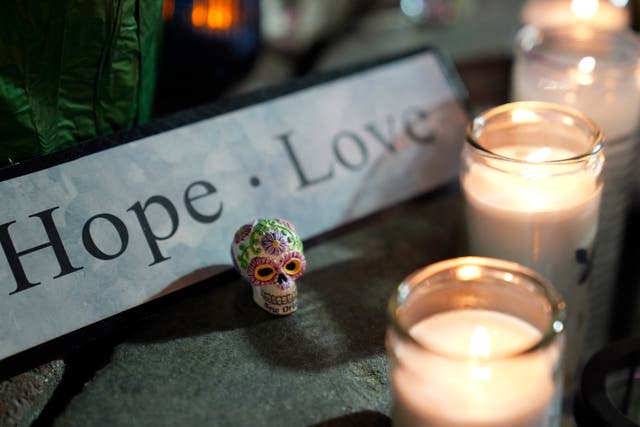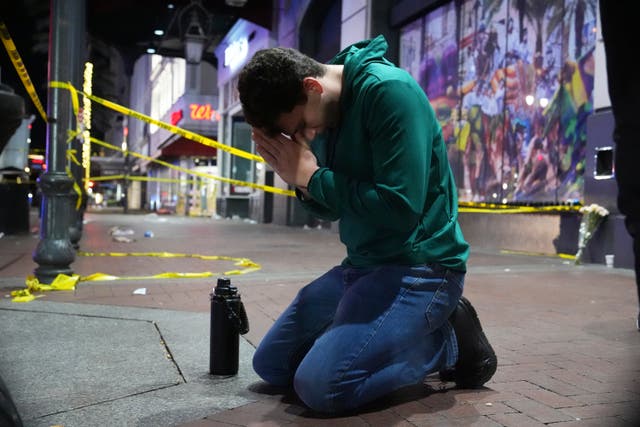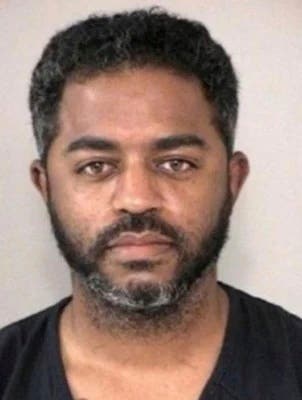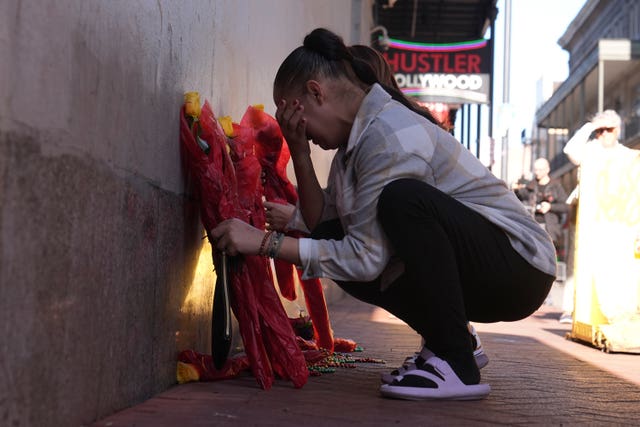Police, street performers and football fans filled the streets in New Orleans as the city recovers from a deadly rampage which saw a US army veteran plough a truck into a crowd of New Year’s Eve revellers.
The attack along Bourbon Street killed 14 people, along with the driver, Shamsud-Din Jabbar, who officials said was inspired by the Islamic State militant group.
Jabbar was fatally shot in a firefight with police after steering a speeding truck around a barricade and ploughing into the crowd.

Authorities finished processing the scene on Thursday morning, removing the last of the bodies.
Bourbon Street, which is famous worldwide for music and open-air drinking, reopened for business by early afternoon.
On the same block where the attack took place, trombone player and lifelong New Orleanian Jonas Green said it was important for his band to be out there the day after the violence.
“I know with this music, it heals, it transforms the feelings that we’re going through into something better,” Mr Green said. “Got to keep on going.”
The Sugar Bowl college football game between Notre Dame and Georgia, which was postponed by a day in the interest of national security, was played on Thursday evening.

She said they expect close to its typical crowd of around 30,000 participants.
In other developments, the White House said President Joe Biden would travel to New Orleans next week.
The president and first lady planned to visit on Monday to “grieve with the families and community members impacted by the tragic attack”.
The FBI has continued to hunt for clues about Jabbar but, a day into its investigation, the agency said it was confident he was not aided by anyone else in the attack which killed an 18-year-old aspiring nurse, a single mother, a father-of-two and a former Princeton University football star, among others.
The FBI said that hours before the attack, Jabbar, a 42-year-old American citizen from Texas, posted five videos on his Facebook account in which he proclaimed his support for the Islamic State group and previewed the violence that he would soon unleash in the famed French Quarter district.
It was the deadliest IS-inspired assault on US soil in years, laying bare what officials have warned is a resurgent international terrorism threat.
It also comes as the FBI and other agencies brace for dramatic leadership upheaval, and likely policy changes, as President-elect Donald Trump’s administration takes office.

The New Orleans attack plans also included the placement of crude bombs in the neighbourhood in an apparent attempt to cause more carnage, officials said.
Two improvised explosive devices left in coolers several blocks apart were rendered safe at the scene.
Other devices were determined to be non-functional.
Investigators also were trying to understand more about Jabbar’s path to radicalisation, which they say culminated with him picking up a rented truck in Houston on December 30 and driving it to New Orleans the following night.
The FBI recovered a black IS flag from Jabbar’s rented pickup truck and reviewed five videos posted to Facebook, including one in which he said he originally planned to harm his family and friends but was concerned news headlines would not focus on the “war between the believers and the disbelievers,” Mr Raia said.

Jabbar joined the army in 2007, serving on active duty in human resources and information technology and deploying to Afghanistan from 2009 to 2010, the service said.
He transferred to the army reserve in 2015 and left in 2020 with the rank of staff sergeant.
A US government official, speaking on condition of anonymity because the official was not authorised to speak publicly, said Jabbar traveled to Egypt in 2023, staying in Cairo for a week, before returning to the US and then traveling to Toronto for three days.
It was not immediately clear what he did during those travels.
Abdur-Rahim Jabbar, Jabbar’s younger brother, told The Associated Press on Thursday it “doesn’t feel real” that his brother could have done this.

He said his brother had been isolated in the last few years but also had been in touch with him recently and did not see any signs of radicalisation.
On Bourbon Street, flowers and candles were arranged as memorials to the victims, while yellow posts were set up on the surrounding blocks.
By Thursday night, bouncers danced to music blasting from clubs, tourists posed for photos and a group of street performers preparing to flip over a line of people had no trouble attracting a massive audience.
Mark Tabor, the manager of a Willie’s Chicken Shack on Bourbon Street, said it was strange to feel the disconnect between the normal hustle of the French Quarter outside and the violence he had witnessed less than 48 hours earlier.
“I’m glad they cleaned up the streets, but it’s like everything’s forgotten,” he said. “It’s sad.”






